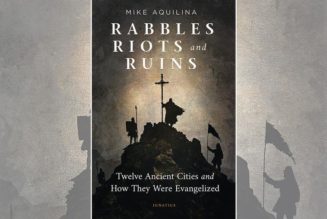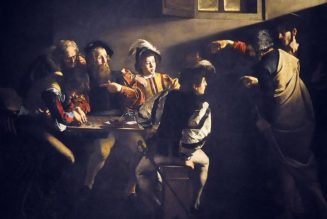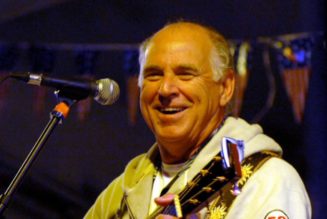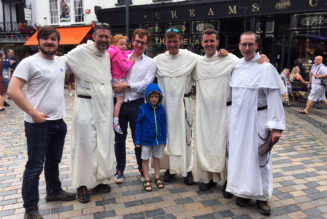“Hey you, stop underestimating the power of your bodily routines.” Thus says Felicia Wu Song in reflecting on the significance of our digital practices. She even suggests we consider these practices as a kind of ‘liturgy,’ an embodied common practice that both expresses and forms who we are.
Relating the power of Anglican liturgies in her own formation, she shares, “I am also increasingly aware of how I have been equally formed by a digital liturgy of sociability and daily life.” (Restless Devices: Recovering Personhood, Presence, and Place in the Digital Age) The connection of our digital practices and the notion of ‘liturgy’ is a bit arresting. And I think it is very much to the point.
Liturgy in the proper sense is a public religious practice that has set bodily forms. God directed the Hebrews of old to worship liturgically, and similarly Christian worship at its root and height is liturgical. As a ‘work of the people’ liturgy is at once a work of worship and a work of human formation. Liturgy expresses who we are, but it also changes us by growing us into who we should be. Liturgy engages every aspect of what it is to be human: bodily creatures who live in community and whose ultimate identity is relationship with God.
It is not surprising then that all of human life can be considered through the lens of liturgy. We might say that whether consciously or not our daily, bodily practices—and of course they always have a certain routine—both express and cultivate specific commitments. An old form of the marriage vow had the words “with my body I thee worship.” We might reflect that in a sense we humans always ‘worship’ something with our bodies; the question is what worship is implicit in our bodily practices.
Many traditional, daily Christian practices are in fact a kind of extension of liturgy into the corners of our life. In this vein we might note how the natural seasons connect to and become liturgical seasons. Further, countless ‘normal’ bodily practices in our homes—from how we sit at the table, greet one another and our guests, prepare serve and bless our food, work in the garden, join together in song, look one another in the eye, begin and end our day, and so much more—all have a liturgical significance. These are embodiments of our deepest commitments, and thus they can be life giving. They can connect us to and harmonize with the more formal liturgical aspects of our life.
Or, our daily practices can, even unwittingly, be a kind of counter-liturgy and work against the liturgy that should undergird and permeate our life. Dr. Song puts to herself the burning question:
Will my life’s assortment of humble liturgies turn out to have widened the path that leads me deeper into the realm of God? Or will they have obscured that same path with the pressing urgencies and ceaseless abundance of the digital?
Here, I suggest, is what so many of us have been looking for. This is the practical angle from which to look anew at our digital practices. How is, especially, the use of various handheld or desktop devices changing the embodied (and thus in a sense liturgical) character of life in our home?
Now I see more clearly the subtle ways that our embodied life together has significantly changed for the worse. It’s visible to the naked eye. An objective outside observer could easily mark the changes, especially for those in a home that predated key aspects of the digital revolution.
Sitting together in silence. Sharing conversation. Undisturbed by what is remote from us, here. Just having time in the evening (especially the evenings!), together, in some form of leisure or shared bodily work. Meals: simply eating together, undisturbed, undistracted. Doing dishes together. Prayer time: together, undisturbed, undistracted (perhaps other than young children—a ‘natural’ distraction). Eye contact; unrushed, undiluted. Silence. The quiet of morning—without yet the intrusion of news, or even the needs, desires, or reports of business associates or friends. Those final blessed moments before bedtime, for reading, or singing, or just whatever. And the peace of Sundays! Undisturbed by what is remote from us, here, for a time. So we can live and love. Together.
For what have we traded these things?
The rhythm, the liturgy of our daily life, has not only been interrupted; it has been redirected to other things.
The first step to renewal is self-knowledge. We can take stock and take action. And real liturgy is far more powerful than any counterfeit. It is what we were made for. By the grace and gift of God, his liturgy can give form to our lives, in a wonderfully embodied, human way. It is our challenge and joy to ask with Dr. Song: “What are the counterliturgies to these routines of mis-formation? How do we seek out generative approaches to developing practices and routines that can redirect our loves back to the kingdom of God?” And we can start in our home. ~ ~ ~
A Three Minute Video on The Home We All Long For
An Exciting Seasonal Video: Those Amazing Paw Paw Trees
The term ‘philosopher kings’ sticks in the head of students of ancient philosophy. In Plato’s Republic Socrates memorably asserts that “until philosophers take control of a city, there’ll be no respite from evil for either city or citizens…” Plato’s assertion here has…
Discouragement, or at least its temptation, regularly accompanies intentional living. Even if we do not formulate it explicitly we find ourselves feeling “why do the good things I want have to be so difficult?” It is a consolation to know this is not unique to our…
There are important analogies between a father in a family and a ruler in a nation. This is perhaps especially clear in the consequences of their failure. Aquinas writes that “royal dignity is rendered hateful to many people on account of the wickedness of tyrants.”…
Husband, father, and professor of Philosophy. LifeCraft springs from one conviction: there is an ancient wisdom about how to live the good life in our homes, with our families; and it is worth our time to hearken to it. Let’s rediscover it together. Learn more.












